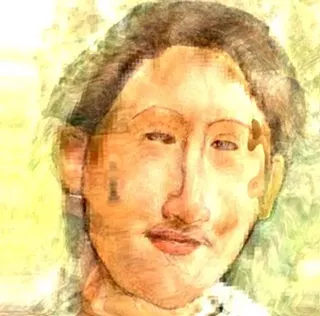Every December, Borderlands Theater presents its version of the traditional pastorela, a retelling of the Christmas story in which shepherds must make their way to a certain Bethlehem manger despite the temptations and obstructions of an assortment of devils. Each community's pastorela is a little different, always updated with references to the past year's very real malefactors and benefactors.
Borderlands' A Tucson Pastorela for 10 years was written by the San Diego-based Max Branscomb. The basic storyline remained intact from season to season, but each year's show was crammed with new pop-culture and local references. It was starting to look a lot less like Christmas than like a Gaslight spoof of Christmas pageants.
This year, Borderlands commissioned its literary manager, accomplished playwright Toni Press-Coffman, to fashion a new script. The result is more artful and serious-minded; it's also initially slower and less blatantly jokey than Branscomb's efforts. Kids and adults seeking ultra-light holiday entertainment may not regard this as an improvement.
Most welcome is Press-Coffman's use of a greater variety of verse forms. No longer is A Tucson Pastorela a parade of rhyming couplets with a joke every four lines; the result may be more sophisticated than what you'll find in the average Mexican village, but it brings a welcome variety of rhythm and texture.
Furthermore, Press-Coffman takes greater care with the nuts and bolts of scriptwriting. In the first scene, she shows a wolf preying on a lamb, foreshadowing the conflict between the devils and the shepherds. (To make it more explicit, the wolf is played by the same actress who portrays Lucifer.) She also better differentiates the members of the shepherd families--one is vain, one is a bit lazy, two others habitually bicker, and so on. Some of the action actually hinges on these personalities; the characters aren't just filler during Lucifer's costume changes.
At times, though, Press-Coffman seems to struggle against a desire to write a play that's more complex and philosophically nuanced than the pastorela format can support. Transported briefly to modern Iraq, one of the Judean shepherds wonders aloud why two millennia of Jesus worship haven't brought greater love into the world; another character answers that humans have free will, and there the discussion ends. You can almost feel Press-Coffman aching to make this the real theme of a much darker nativity play, but A Tucson Pastorela turns out not to be that play.
What may disappoint some longtime Tucson Pastorela fans is that this new version isn't exactly a laugh riot. Press-Coffman is by no means humorless, but she tends to make subtle effects with little ironies rather than going for quick guffaws with incongruous pop-culture references. The Branscomb-style Pastorela of yore doesn't kick in until halfway through, when the devils finally begin distracting the shepherds by impersonating the media-saturating figures of 2006 (like Mel Gibson pretending not to be an anti-Semite), which the angels vanquish disguised as small-time strivers for good (including Karin Uhlich and Patty Weiss).
There also seem to be fewer big pop-parody vocal numbers this year. Stephanie Sikes does a fabulous job in terms of voice and characterization as Lucifer, but the few other non-carol interludes don't have much impact (aside from the always solid and colorful work of waila band Gertie and the T.O. Boyz).
There's been a fairly heavy turnover in the cast this year, and perhaps directors Barclay Goldsmith and Eva Zorrilla Tessler wanted to raise the overall quality of acting. (This has always been a community-based pageant, and aside from having a few pros in the leading roles, A Tucson Pastorela is not intended to represent Borderlands' usual level of acting.) Arturo Martinez, who's been in the show since the beginning, is back again, this time as a sheep dog rather than a shepherd. (You'll have to trust me that this is not a demotion.) Hector M. Ayala lends his customary dignity to the role of the devout outsider-shepherd Soledad. A few other old-timers also return, but the all-important angels and devils are almost all new to the production.
Press-Coffman has managed to make the humor fall more naturally than usual on the angels, and level-headed Roger Owen and exuberant Teresa Simone as Gabriel handle it without losing their dignity. Joining the excellent Sikes on the dark side are Carrie Hill as a strutting, self-centered bimbo incarnation of Moloch, who's all for snaring souls as long as it doesn't mean snagging a nail, and Angelica Rodenbeck as a wonderfully vile, dirty, spidery, hyperactive Satan.
As always, children are invited onto the stage at the end to take a swing at a piñata as a reward for sitting patiently through the 90-minute performance. "Patience" is the operative word here; Toni Press-Coffman's new treatment of A Tucson Pastorela has much to offer audiences that don't demand instant gratification.











